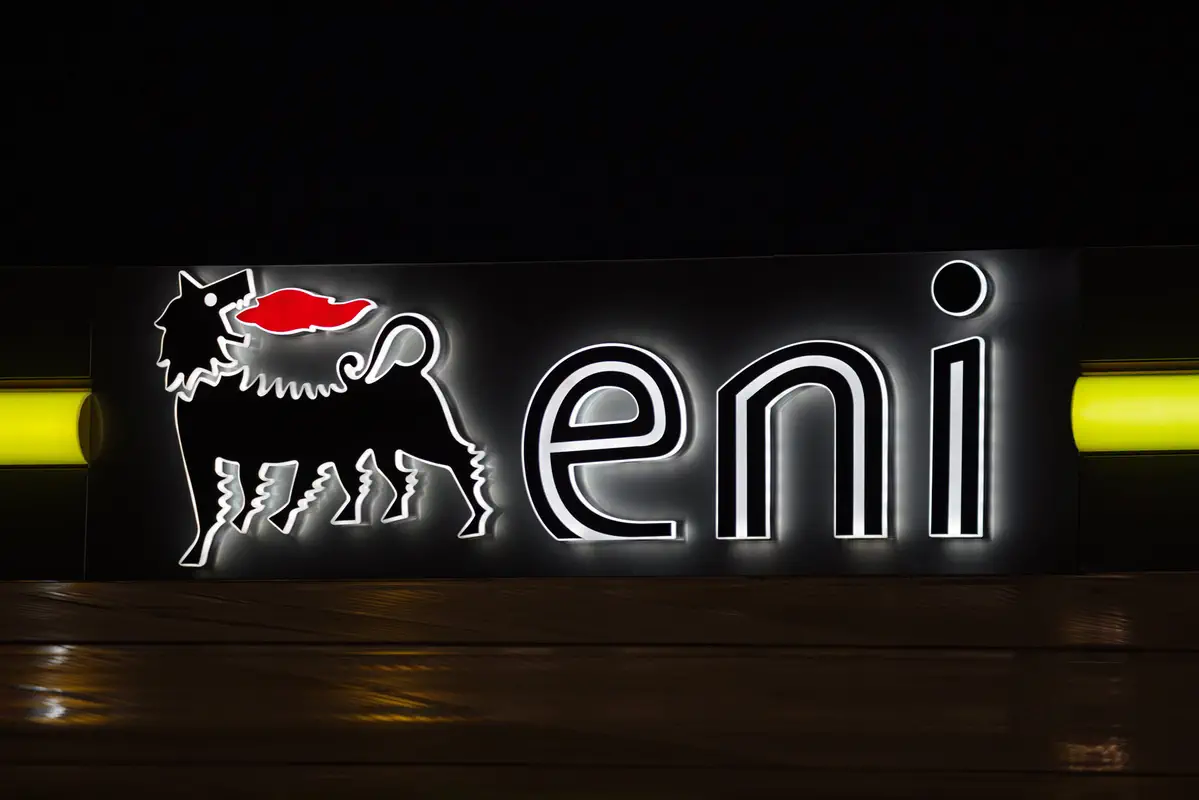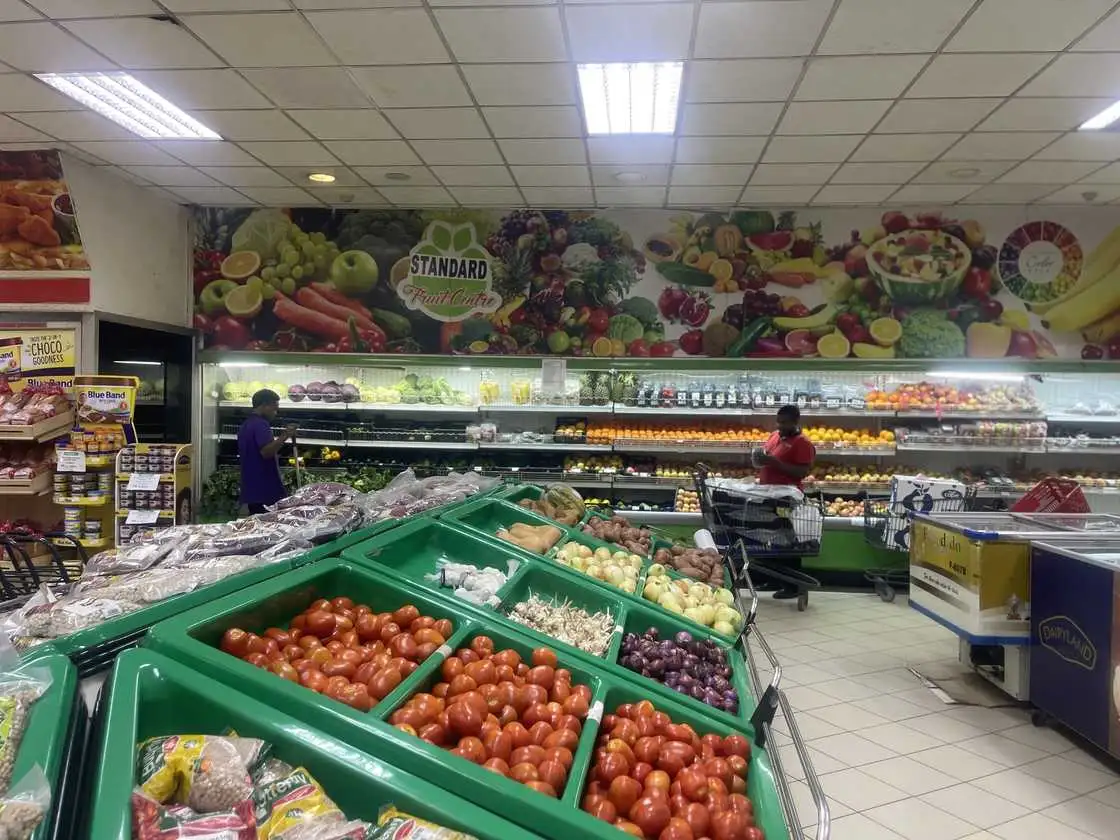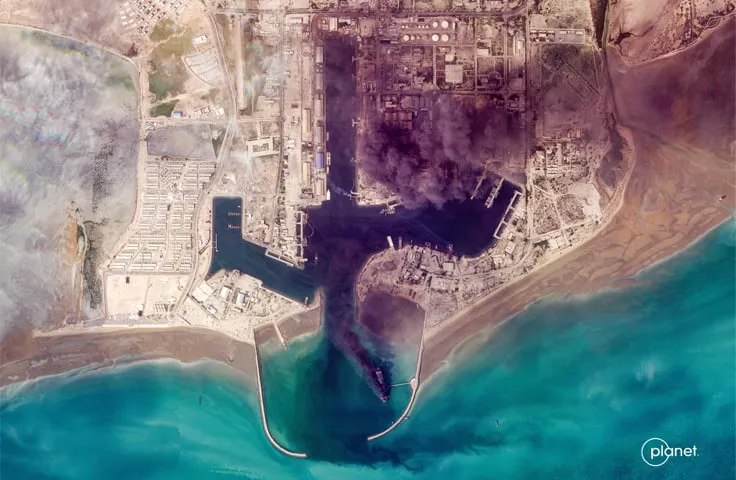Italian energy giant Eni (ENI.MI) announced plans to invest approximately 24 billion euros (roughly $26.24 billion) over the next four years in Algeria, Libya, and Egypt. The decision, revealed by Eni CEO Claudio Descalzi at an energy conference in Ravenna, underscores the company’s commitment to revitalize energy production in North Africa, enhance hydrocarbon supply reliability, and further cement Rome’s efforts under its so-called Mattei Plan to re-establish strong economic and political ties with the African continent.
Eni’s planned investment is set against a backdrop of rising domestic energy demand in the region and increasing geopolitical interest from European energy markets. This ambitious initiative is not only expected to transform the energy production dynamics in Algeria, Libya, and Egypt but also foster deeper regional integration and cooperation at a time when energy security has become a strategic imperative for Europe.
A Bold Strategic Vision: Re-Energizing North Africa
Historical Context and the Mattei Plan
The Mattei Plan, named after Italy’s influential former energy minister Enrico Mattei, has long symbolized Italy’s commitment to expanding energy cooperation with North Africa. Historically, Italy has maintained robust economic ties with North African nations, driven by mutual strategic interests. The current investment strategy is a modern reinterpretation of that legacy—reinvigorating past partnerships while adapting to the rapidly evolving global energy landscape.
The Mattei Plan seeks to create synergies between Italy and its North African partners, addressing critical issues such as energy security, technological exchange, and sustainable development. By investing billions in the region, Eni is positioning itself not only as a profit-seeking enterprise but also as a vital contributor to regional stability and economic progress. This effort comes at a time when Europe is increasingly looking to diversify its energy sources in light of the geopolitical tensions and market uncertainties that have characterized recent years.
The Role of North Africa in Europe’s Energy Future
For Europe, North Africa represents an indispensable energy corridor. With rising global demand and increasingly stringent carbon reduction targets, European nations are re-examining their reliance on traditional energy sources. In this context, Algeria, Libya, and Egypt are seen as strategic partners capable of providing the hydrocarbon supplies necessary to meet Europe’s short- and long-term energy needs.
The North African region possesses vast reserves of oil and natural gas, and despite challenges such as fluctuating domestic production levels and political volatility, these countries have significant potential for expansion with the right investment. Eni’s capital injection aims to unlock this potential by financing modern technological upgrades, enhancing extraction processes, and developing downstream infrastructure that can streamline the export of energy to European markets.
Deep Dive into the Investment Plan
Algeria, Libya, and Egypt: Target Markets for Transformation
Algeria:
Algeria has long been a critical player in the energy sector, traditionally relying on a mix of oil and gas revenues to drive its economy. However, with internal demand rising at approximately 7-8% annually, the pressure on the nation’s energy infrastructure has intensified. Eni’s plan to invest over 8 billion euros in Algeria is expected to catalyze much-needed upgrades in exploration and production capabilities, bolster existing extraction technologies, and facilitate new discoveries. Modernization efforts are anticipated to not only secure Algeria’s role as a pivotal gas supplier to Europe but also stimulate ancillary economic sectors within the country.
Libya:
Libya’s oil and gas sector has historically been hampered by political instability, regional conflicts, and a lack of sustained investment. Eni’s declared intent to inject a similarly substantial amount into Libya—also over 8 billion euros—is poised to transform the country’s energy landscape. By bringing in state-of-the-art technologies and forging stronger public-private partnerships, the investment aims to revitalize Libya’s production capabilities. Restoration of stability in the sector could lead to improved production efficiency, better safety standards, and enhanced regulatory frameworks that reassure international investors. Eni’s strategic approach is expected to create a more conducive environment for sustained growth and development, thereby increasing Libya’s attractiveness as an energy hub.
Egypt:
Egypt stands out as a particularly intriguing case in North Africa. Following the significant discovery of the Zohr offshore gas field in 2015, there was a surge of optimism regarding Egypt’s capacity to transform into a major gas exporter. However, despite these promising developments, domestic gas production has been on a decline since 2021, reaching a six-year low in 2024 due to a combination of operational challenges and burgeoning local demand. With over 8 billion euros slated for investment, Eni intends to reverse this trend by focusing on boosting production capacity, modernizing extraction techniques, and developing ancillary infrastructure. This investment is expected to stabilize domestic supply, allowing Egypt to meet its internal consumption needs while repositioning itself as a key exporter of liquefied natural gas (LNG) to Europe.
Technological Transformation and Infrastructure Modernization
The investment strategy does not solely focus on increasing output; it also encompasses a comprehensive upgrade of technological and infrastructural capabilities. In recent years, digital transformation has become synonymous with operational efficiency in the energy sector. Eni is expected to pioneer the integration of state-of-the-art technologies—including advanced data analytics, machine learning algorithms for predictive maintenance, and IoT-based monitoring systems—into its North African operations.
These innovations are anticipated to deliver significant dividends in terms of productivity gains and cost efficiencies. For instance, real-time monitoring systems can significantly reduce downtime and optimize resource allocation, leading to more agile responses to market fluctuations and operational disruptions. Furthermore, upgrading the LNG infrastructure in Egypt—together with expanding capacity in Algeria and Libya—will ensure that these nations can meet rising production targets, thereby bolstering Europe’s energy security in an era characterized by market volatility and geopolitical uncertainties.
Economic and Social Impact
Beyond the immediate technical upgrades, Eni’s massive investment is poised to deliver broader socio-economic benefits. Each of the three countries stands to gain significantly from the influx of capital, not just in terms of enhanced energy production but also through the creation of jobs, the development of local industries, and improved socio-economic infrastructure. Increased energy production can stimulate local economies, attract further foreign investment, and drive innovation in related sectors such as petrochemicals and renewable energy.
Moreover, the investment is expected to trigger a virtuous cycle of economic growth. For instance, modernized extraction facilities require skilled labor, leading to more training and education opportunities for local workforces. Over time, such developments can help reduce unemployment rates, increase household incomes, and contribute to overall economic stability in the region. In the longer term, these socio-economic improvements are likely to foster a more stable political environment, further increasing the attractiveness of North Africa as a global energy hub.
Geopolitical Implications and Regional Dynamics
Strengthening Political Ties
Eni’s announcement comes at a time when Italy is actively working to reinvigorate its diplomatic and economic relationships with North Africa. Through the Mattei Plan, Rome has sought to re-establish trust and mutual cooperation with its southern neighbors. This renewed focus on strategic partnerships is intended to create a stable framework for economic interactions, where mutual benefits are carefully balanced against geopolitical realities.
Investment projects of this magnitude often carry significant diplomatic weight. By committing billions of euros to Algeria, Libya, and Egypt, Italy is effectively signaling its long-term strategic interests in the region. This initiative is likely to bolster Italy’s influence in North Africa and, by extension, in broader international energy circles—a development that could reshape the geopolitical landscape over the coming decades.
Enhancing Europe’s Energy Security
For Europe, securing a stable and diversified energy supply is of paramount importance. The European energy market has been grappling with a host of challenges, ranging from supply disruptions to fluctuating global prices and a pressing need for sustainable sources. Eni’s investment in North Africa is strategically aligned with European priorities, offering a counterbalance to uncertainties in other regions, such as the volatile energy supply from Eastern Europe or the Middle East.
Recent years have seen Europe engage in several initiatives to diversify its energy mix, including substantial investments in renewable energy and the development of transcontinental energy corridors. In this broader context, North African hydrocarbons represent a critical complement to Europe’s shifting energy portfolio. The planned investments by Eni are expected to reinforce the reliability of North African gas supplies, thereby mitigating risks associated with supply shortages and price spikes.
Cross-Border Collaborations and Future Prospects
One of the noteworthy aspects of the current investment strategy is the emerging framework of regional cooperation. Earlier this year, Cyprus and Egypt signed an agreement to process gas from Cyprus’s offshore fields in Egypt. This arrangement, facilitated by Eni’s expertise in LNG, highlights an evolving landscape where neighboring nations pool resources and share expertise to maximize mutual benefits. Such collaborations can pave the way for larger, integrated energy markets in the Mediterranean region, fostering stability and bolstering collective energy security.
Moreover, these partnerships might spur further initiatives in the region. With Eni’s involvement, there could be opportunities to explore new fields of collaboration, including joint research projects on renewable energy technologies, shared infrastructure investments, and cross-border regulatory reforms aimed at enhancing market efficiency and transparency.
Technological Innovation: Powering the Future of Energy
The Role of LNG and Digital Technologies
The investment announcement arrives on the heels of notable industry developments, including the recent LNG 2023 energy trade show in Vancouver. At the trade show, state-of-the-art innovations in LNG technology were showcased, emphasizing the growing importance of liquefied natural gas as a cleaner and more adaptable energy source. For Egypt, which has been struggling with declining domestic gas production since 2021, enhancing LNG production capacity is critical.
Eni’s strategy includes significant upgrades to LNG infrastructure, ensuring that the extracted gas can be efficiently processed, liquefied, and exported. This commitment to technological innovation is underscored by the broader industry trend toward digitalization and automation. Advanced data analytics, for example, can optimize supply chains, reduce downtime, and improve overall operational efficiency—benefits that are particularly vital in high-stakes energy markets.
Digital Transformation and Efficiency Gains
Eni’s North African operations are set to benefit immensely from digital transformation. Integrating modern digital tools can lead to considerable efficiency gains. For instance, predictive maintenance systems can identify potential equipment failures before they occur, thereby minimizing costly downtimes. Furthermore, real-time monitoring enabled by IoT sensors can significantly improve safety standards and resource allocation across extraction sites.
The adoption of machine learning algorithms for data-driven decision-making is another key facet of this transformation. By analyzing historical and real-time data, Eni will be better positioned to make informed decisions regarding exploration, production scheduling, and market distribution strategies. These technological advancements not only boost productivity but also contribute to the overall sustainability of operations—a factor increasingly important to investors, regulators, and local communities alike.
Socio-Economic Benefits and Environmental Considerations
A Catalyst for Regional Development
The planned investments are expected to have far-reaching socio-economic impacts in North Africa. Beyond enhancing energy production, they are poised to create numerous job opportunities, stimulate local industries, and foster the development of ancillary services. In Algeria, Libya, and Egypt, the multiplier effects of such capital infusions could lead to improved public services, enhanced educational programs in energy-related fields, and overall economic diversification. By investing in modern training and upskilling programs, Eni and its partners can help create a workforce that is better equipped to handle the technological demands of a modern energy industry.
Balancing Economic Growth with Environmental Sustainability
While the primary focus of the investment is to boost energy production and meet rising domestic demand, environmental sustainability remains a critical consideration. Eni has long recognized the need for a balanced approach that marries economic growth with responsible environmental stewardship. Amid increasing global awareness of climate change and environmental degradation, Eni’s investment strategy includes measures to reduce the carbon footprint of its operations.
Upgrading extraction processes and infrastructure not only improves efficiency but also opens opportunities for incorporating cleaner technologies. The integration of digital monitoring systems, for instance, can minimize energy wastage and reduce emissions from industrial processes. Moreover, Eni has expressed its commitment to exploring renewable energy projects alongside its traditional fossil fuel investments, positioning itself as a forward-thinking operator in a rapidly changing energy landscape.
Challenges, Risks, and Forward-Looking Strategies
Navigating Political Instability and Regulatory Hurdles
Investments of this magnitude are not without their challenges. North Africa has long been a region characterized by political and regulatory uncertainties. Each of the target countries—Algeria, Libya, and Egypt—presents its unique set of challenges, ranging from bureaucratic inertia to political volatility. Eni’s success will depend on its ability to navigate these turbulent waters while forging robust relationships with local governments and regulatory bodies.
To mitigate these risks, Eni is expected to engage in extensive dialogue with policymakers, adopting a collaborative approach that aligns the interests of both the corporate and public sectors. Establishing clear, mutually beneficial frameworks for investment will be crucial in ensuring the long-term viability of the projects. Furthermore, Eni’s track record of successful operations in complex environments provides a degree of assurance that it can manage these hurdles effectively.
Strategic Foresight in a Changing Global Energy Market
The global energy market is in a state of rapid evolution, driven by technological advancements, geopolitical shifts, and changing consumer preferences. In this context, strategic foresight has emerged as an indispensable tool for companies like Eni. The decision to invest heavily in North Africa is not only a response to immediate market needs but also a strategic long-term initiative designed to secure a competitive advantage in an increasingly volatile energy landscape.
Eni’s forward-thinking approach includes an active focus on research and development, particularly in the fields of digital transformation and renewable energy. By positioning itself at the forefront of technological innovation, Eni aims to deliver not only improved production efficiency but also sustainable economic benefits that align with global environmental goals.
Conclusion: A New Chapter in Energy and Investment
Eni’s unprecedented commitment to invest $26 billion over the next four years in Algeria, Libya, and Egypt marks a pivotal moment in the global energy sector. Driven by the urgent need to address rising domestic energy demands and the strategic imperative to secure European energy supplies, this initiative is set to redefine the energy landscape in North Africa. While the challenges of political instability, regulatory hurdles, and technological transition are undeniable, the potential rewards—in terms of enhanced energy security, socio-economic development, and long-term sustainability—are profound.
As Eni embarks on this ambitious journey, its efforts signal a renewed focus on collaboration, innovation, and regional integration. The move reflects not only the resilience of a company with a storied history but also the evolution of Italy’s strategic vision under the Mattei Plan. By revitalizing its relationships with North African nations, Italy is reinforcing a shared commitment to a stable, prosperous, and sustainable future—one that recognizes the interconnected nature of global energy markets and the need for cooperative problem-solving in the face of modern challenges.
The planned investments are expected to pave the way for significant technological advancements, drive economic growth, and ultimately establish North Africa as a linchpin in the broader energy security framework of Europe. For local communities, the economic ripple effects could translate into enhanced living standards and greater employment opportunities, while the region’s governments stand to benefit from bolstered revenues and improved infrastructure.
In an era characterized by uncertainty and rapid change, Eni’s bold strategy reaffirms the fundamental role of energy in driving economic progress and geopolitical stability. By aligning investment priorities with technological innovation and sustainability, Eni not only prepares itself for the future but also contributes to building a resilient, interconnected, and forward-looking global energy ecosystem.
As the world watches these developments unfold, industry experts and policymakers alike will be closely monitoring the outcomes of this large-scale investment initiative. With strategic foresight and an unwavering commitment to progress, Eni’s investment in North Africa is poised to serve as a model for future cross-border collaborations in the energy sector—one that champions both economic growth and environmental responsibility.
In summary, while the global energy market faces numerous challenges—from geopolitical tensions and domestic supply constraints to the imperatives of technological transformation—Eni’s investment initiative offers a beacon of hope. It is a testament to the power of strategic vision, the importance of international cooperation, and the potential for transformative change when public and private interests converge. As Algeria, Libya, and Egypt embark on this journey toward enhanced energy production and sustainability, they not only secure their own futures but also contribute significantly to the broader goal of global energy security and economic stability.
With over 1500 words of in-depth analysis and contextual insight, this comprehensive look at Eni’s planned investment highlights the multi-faceted dimensions of modern energy challenges and opportunities. Through bold initiatives, technological advancements, and enduring international partnerships, the future of North African energy—and by extension, global energy security—appears more interconnected and promising than ever.
Ready to take your career to the next level? Join our dynamic courses: ACCA, HESI A2, ATI TEAS 7 , HESI EXIT , NCLEX – RN and NCLEX – PN, Financial Literacy!🌟 Dive into a world of opportunities and empower yourself for success. Explore more at Serrari Ed and start your exciting journey today! ✨
photo source: Google
By: Montel Kamau
Serrari Financial Analyst
9th April, 2025
Article, Financial and News Disclaimer
The Value of a Financial Advisor
While this article offers valuable insights, it is essential to recognize that personal finance can be highly complex and unique to each individual. A financial advisor provides professional expertise and personalized guidance to help you make well-informed decisions tailored to your specific circumstances and goals.
Beyond offering knowledge, a financial advisor serves as a trusted partner to help you stay disciplined, avoid common pitfalls, and remain focused on your long-term objectives. Their perspective and experience can complement your own efforts, enhancing your financial well-being and ensuring a more confident approach to managing your finances.
Disclaimer: This article is for informational purposes only and does not constitute financial advice. Readers are encouraged to consult a licensed financial advisor to obtain guidance specific to their financial situation.
Article and News Disclaimer
The information provided on www.serrarigroup.com is for general informational purposes only. While we strive to keep the information up to date and accurate, we make no representations or warranties of any kind, express or implied, about the completeness, accuracy, reliability, suitability, or availability with respect to the website or the information, products, services, or related graphics contained on the website for any purpose. Any reliance you place on such information is therefore strictly at your own risk.
www.serrarigroup.com is not responsible for any errors or omissions, or for the results obtained from the use of this information. All information on the website is provided on an as-is basis, with no guarantee of completeness, accuracy, timeliness, or of the results obtained from the use of this information, and without warranty of any kind, express or implied, including but not limited to warranties of performance, merchantability, and fitness for a particular purpose.
In no event will www.serrarigroup.com be liable to you or anyone else for any decision made or action taken in reliance on the information provided on the website or for any consequential, special, or similar damages, even if advised of the possibility of such damages.
The articles, news, and information presented on www.serrarigroup.com reflect the opinions of the respective authors and contributors and do not necessarily represent the views of the website or its management. Any views or opinions expressed are solely those of the individual authors and do not represent the website's views or opinions as a whole.
The content on www.serrarigroup.com may include links to external websites, which are provided for convenience and informational purposes only. We have no control over the nature, content, and availability of those sites. The inclusion of any links does not necessarily imply a recommendation or endorsement of the views expressed within them.
Every effort is made to keep the website up and running smoothly. However, www.serrarigroup.com takes no responsibility for, and will not be liable for, the website being temporarily unavailable due to technical issues beyond our control.
Please note that laws, regulations, and information can change rapidly, and we advise you to conduct further research and seek professional advice when necessary.
By using www.serrarigroup.com, you agree to this disclaimer and its terms. If you do not agree with this disclaimer, please do not use the website.
www.serrarigroup.com, reserves the right to update, modify, or remove any part of this disclaimer without prior notice. It is your responsibility to review this disclaimer periodically for changes.
Serrari Group 2025
















